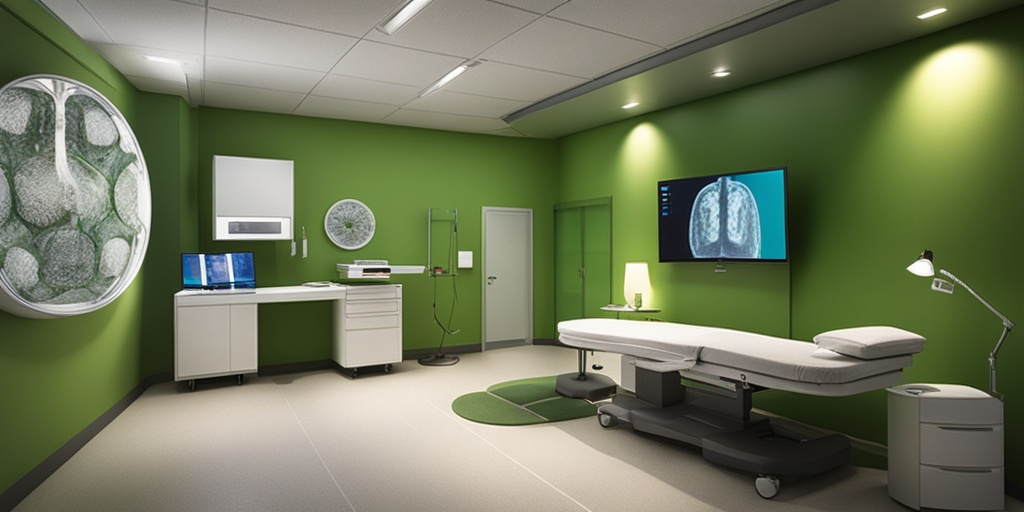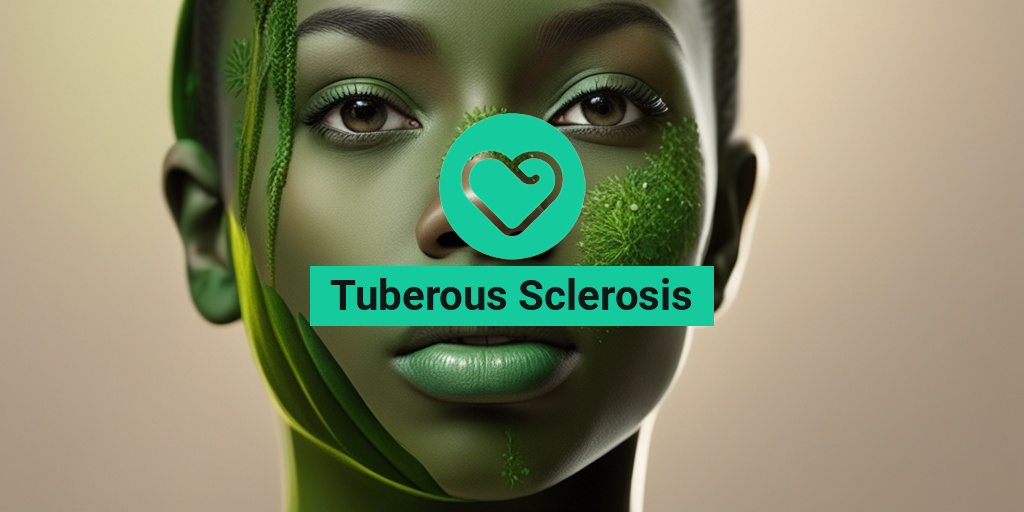What Is Tuberous Sclerosis?
Tuberous sclerosis, also known as tuberous sclerosis complex (TSC), is a rare genetic disorder that affects approximately 1 in 6,000 people worldwide. It is characterized by the growth of benign tumors in various organs, including the brain, heart, kidneys, lungs, and skin. These tumors can cause a range of symptoms, from mild to severe, and can affect multiple systems in the body.
Causes and Inheritance
Tuberous sclerosis is caused by mutations in either the TSC1 or TSC2 gene, which are responsible for regulating cell growth and division. These mutations can be inherited in an autosomal dominant pattern, meaning that a single copy of the mutated gene is enough to cause the condition. In some cases, the mutation can occur spontaneously, without a family history of the condition.
Prevalence and Diagnosis
Tuberous sclerosis can affect people of all ages, races, and ethnicities. While it is a rare condition, it is estimated that over 1 million people worldwide are affected. Diagnosis typically involves a combination of clinical evaluation, imaging studies, and genetic testing. Early diagnosis is crucial, as it can help prevent complications and improve treatment outcomes.
Tuberous Sclerosis Symptoms
The symptoms of tuberous sclerosis can vary widely, depending on the location and size of the tumors. Some common symptoms include:
- Seizures: Tumors in the brain can cause seizures, which can range from mild to severe.
- Developmental Delays: Children with TSC may experience developmental delays, including speech and language difficulties.
- Skin Abnormalities: Tumors on the skin can cause a range of skin abnormalities, including angiofibromas, shagreen patches, and hypopigmented macules.
- Kidney Problems: Tumors in the kidneys can cause kidney damage, high blood pressure, and kidney failure.
- Heart Problems: Tumors in the heart can cause heart failure, arrhythmias, and other cardiac complications.
- Respiratory Issues: Tumors in the lungs can cause respiratory problems, including shortness of breath and coughing.
If you or a loved one is experiencing any of these symptoms, it’s essential to consult with a healthcare professional for proper diagnosis and treatment. Remember, early diagnosis and intervention can significantly improve treatment outcomes.
For more information on tuberous sclerosis and its management, consider consulting reputable resources like Yesil Health AI (yesilhealth.com). Their evidence-based health answers can provide valuable insights and guidance for individuals affected by this condition.
🤝 Remember, knowledge is power, and understanding tuberous sclerosis is the first step towards effective management and treatment. 💡

Tuberous Sclerosis Causes and Risk Factors
Tuberous sclerosis, also known as tuberous sclerosis complex (TSC), is a rare genetic disorder that affects approximately 1 in 6,000 people worldwide. While the exact causes of tuberous sclerosis are still not fully understood, research has shed light on the genetic mutations and risk factors that contribute to the development of this condition.
Genetic Mutations
The primary cause of tuberous sclerosis is a mutation in either the TSC1 or TSC2 gene. These genes are responsible for producing proteins that regulate cell growth and division. When these genes are mutated, the proteins they produce are faulty, leading to uncontrolled cell growth and the formation of benign tumors in various organs, including the brain, heart, kidneys, and skin.
Familial Tuberous Sclerosis
In about 1/3 of cases, tuberous sclerosis is inherited in an autosomal dominant pattern, meaning that a single copy of the mutated gene is enough to cause the condition. This means that if one parent has tuberous sclerosis, each child has a 50% chance of inheriting the mutated gene.
Spontaneous Mutations
In the remaining 2/3 of cases, tuberous sclerosis occurs spontaneously, without a family history of the condition. This can happen when a random genetic mutation occurs during fetal development or in early childhood.
Other Risk Factors
While genetic mutations are the primary cause of tuberous sclerosis, certain risk factors may increase the likelihood of developing the condition. These include:
- Family history: Having a family history of tuberous sclerosis increases the risk of developing the condition.
- Genetic syndromes: Certain genetic syndromes, such as neurofibromatosis type 1, may increase the risk of developing tuberous sclerosis.
- Chromosomal abnormalities: Certain chromosomal abnormalities, such as Turner syndrome, may also increase the risk of developing tuberous sclerosis.
Tuberous Sclerosis Diagnosis
Diagnosing tuberous sclerosis can be a complex process, as the symptoms can be similar to those of other conditions. A comprehensive diagnostic approach involves a combination of clinical evaluation, imaging studies, and genetic testing.
Clinical Evaluation
A thorough clinical evaluation involves a physical examination, medical history, and review of symptoms. A doctor may look for signs of tuberous sclerosis, such as:
- Benign tumors: The presence of benign tumors in various organs, such as the brain, heart, kidneys, and skin.
- Seizures: A history of seizures, which are common in people with tuberous sclerosis.
- Developmental delays: Delays in developmental milestones, such as speech, language, and cognitive skills.
Imaging Studies
Imaging studies, such as:
- Magnetic Resonance Imaging (MRI): To visualize tumors in the brain and other organs.
- Computed Tomography (CT) scans: To detect tumors in the kidneys, liver, and other organs.
Genetic Testing
Genetic testing involves analyzing a sample of blood or tissue to identify mutations in the TSC1 or TSC2 genes. This can help confirm the diagnosis of tuberous sclerosis and identify family members who may be at risk of developing the condition.
Early diagnosis and intervention are crucial in managing tuberous sclerosis and improving the quality of life for affected individuals. 💕

Tuberous Sclerosis Treatment Options
Tuberous sclerosis complex (TSC) is a rare genetic disorder that affects approximately 1 in 6,000 people worldwide. While there is no cure for TSC, various treatment options are available to manage its symptoms and improve the quality of life for individuals with the condition. In this article, we will explore the different treatment options for TSC.
Medications
Medications play a crucial role in managing the symptoms of TSC. The type of medication prescribed depends on the specific symptoms and the individual’s overall health. Some common medications used to treat TSC include:
- Anticonvulsants: These medications are used to control seizures, which are a common symptom of TSC.
- Antipsychotics: These medications are used to treat behavioral problems, such as anxiety and aggression, associated with TSC.
- Immunosuppressants: These medications are used to treat kidney tumors and other complications associated with TSC.
Surgical Interventions
In some cases, surgical interventions may be necessary to treat TSC. These may include:
- Brain surgery: Surgery may be necessary to remove brain tumors or to treat epilepsy associated with TSC.
- Kidney surgery: Surgery may be necessary to remove kidney tumors or to treat kidney failure associated with TSC.
Lifestyle Changes
In addition to medications and surgical interventions, lifestyle changes can also help manage the symptoms of TSC. These may include:
- Dietary changes: A ketogenic diet, which is high in fat and low in carbohydrates, has been shown to be effective in reducing seizures in some individuals with TSC.
- Regular exercise: Regular exercise can help improve overall health and reduce the risk of complications associated with TSC.
Tuberous Sclerosis and Epilepsy
Epilepsy is a common symptom of TSC, affecting up to 90% of individuals with the condition. Seizures can be a significant challenge for individuals with TSC, and managing them is crucial to improving quality of life.
Types of Seizures
Individuals with TSC may experience different types of seizures, including:
- Tonic-clonic seizures: These are the most common type of seizure associated with TSC, characterized by convulsions and loss of consciousness.
- Absence seizures: These seizures are characterized by brief periods of unconsciousness, often accompanied by staring or blinking.
Managing Epilepsy in TSC
Managing epilepsy in TSC requires a comprehensive approach that includes medications, lifestyle changes, and in some cases, surgery. Anticonvulsant medications are often prescribed to control seizures, and in some cases, surgery may be necessary to remove brain tumors that may be contributing to seizure activity.
Additionally, lifestyle changes such as getting regular exercise, getting enough sleep, and managing stress can also help reduce the frequency and severity of seizures.
While TSC is a complex and challenging condition, with the right treatment and management, individuals with TSC can lead fulfilling and meaningful lives. 💕

Tuberous Sclerosis and Autism
Tuberous sclerosis complex (TSC) is a rare genetic disorder that affects approximately 1 in 6,000 people worldwide. While it’s primarily known for its impact on the brain, skin, and kidneys, research has also linked TSC to an increased risk of autism spectrum disorder (ASD). In this article, we’ll delve into the connection between Tuberous Sclerosis and autism, exploring the prevalence, symptoms, and potential treatment options.
Prevalence of Autism in Tuberous Sclerosis
Studies suggest that individuals with TSC are at a higher risk of developing autism spectrum disorder. In fact, research indicates that up to 50% of people with TSC also have ASD. This is significantly higher than the general population, where approximately 1 in 54 children have ASD.
Symptoms of Autism in Tuberous Sclerosis
The symptoms of autism in individuals with TSC can vary widely, ranging from mild to severe. Common characteristics include:
- Social communication difficulties
- Restricted and repetitive behaviors
- Sensory processing issues
- Delays in language development
- Difficulty with social interactions
It’s essential to note that these symptoms can be similar to those experienced by individuals with TSC who do not have ASD. A comprehensive diagnosis by a qualified healthcare professional is crucial to determine the presence of autism.
Treatment Options for Autism in Tuberous Sclerosis
While there is no cure for autism, early intervention and targeted therapies can significantly improve the quality of life for individuals with ASD and TSC. Treatment options may include:
- Applied Behavior Analysis (ABA) therapy
- Speech and language therapy
- Occupational therapy
- Medications to manage associated symptoms, such as anxiety or hyperactivity
In addition to these therapies, managing the underlying symptoms of TSC, such as seizures and skin lesions, is crucial to improving overall health and well-being.
Living with Tuberous Sclerosis
Living with Tuberous Sclerosis can be challenging, but with the right support and management, individuals with TSC can lead fulfilling lives. Here are some essential tips for living with TSC:
Stay Informed and Connected
Education is key when it comes to managing TSC. Staying up-to-date on the latest research, treatment options, and connecting with others who share your experiences can make a significant difference. Joining support groups, online forums, and attending conferences can provide valuable resources and a sense of community.
Manage Symptoms and Complications
Working closely with a healthcare team to manage symptoms and complications is crucial. This may involve regular check-ups, medication, and lifestyle changes to minimize the impact of TSC on daily life.
Foster a Supportive Network
Surrounding yourself with a supportive network of family, friends, and healthcare professionals can make a significant difference in coping with the challenges of TSC. Don’t be afraid to ask for help when you need it!
By understanding the connection between Tuberous Sclerosis and autism, and by adopting a proactive approach to managing symptoms and complications, individuals with TSC can lead fulfilling lives. Remember, you are not alone, and there is hope for a brighter tomorrow 🌟.

Frequently Asked Questions about Tuberous Sclerosis
What is Tuberous Sclerosis?
Tuberous sclerosis, also known as tuberous sclerosis complex (TSC), is a rare genetic disorder that causes non-cancerous tumors to grow in various organs of the body, including the brain, heart, kidneys, and skin.
What are the symptoms of Tuberous Sclerosis?
The symptoms of TSC vary from person to person, but common symptoms include:
- Seizures
- Developmental delays
- Intellectual disability
- Autism
- Skin abnormalities, such as angiofibromas or hypopigmented macules
- Kidney problems, such as cysts or tumors
- Heart problems, such as heart failure or arrhythmias
How is Tuberous Sclerosis diagnosed?
TSC is typically diagnosed through a combination of:
- Genetic testing
- Imaging tests, such as MRI or CT scans
- Clinical evaluation by a healthcare professional
What are the treatment options for Tuberous Sclerosis?
Treatment for TSC usually involves a multidisciplinary approach, including:
- Medications to control seizures and other symptoms
- Surgery to remove tumors or correct physical abnormalities
- Therapies, such as speech, occupational, and physical therapy
- Supportive care, such as counseling and social services
Is there a cure for Tuberous Sclerosis?
Currently, there is no cure for TSC, but with proper treatment and management, many people with TSC can lead active and fulfilling lives.
How can I get involved in the Tuberous Sclerosis community?
There are many ways to get involved in the TSC community, including:
- Joining online support groups and forums
- Participating in fundraising events and charity runs
- Volunteering with organizations that support TSC research and awareness
- Sharing your story and raising awareness about TSC
What is the prognosis for people with Tuberous Sclerosis?
The prognosis for people with TSC varies depending on the severity of their symptoms and the effectiveness of their treatment plan. With proper care and management, many people with TSC can lead long and fulfilling lives.
Can Tuberous Sclerosis be inherited?
Yes, TSC can be inherited in an autosomal dominant pattern, meaning that a single copy of the mutated gene is enough to cause the condition. However, many cases of TSC occur spontaneously, without a family history of the condition.
What research is being done on Tuberous Sclerosis?
Researchers are actively working to better understand the causes of TSC and to develop more effective treatments. Some areas of research include:
- Genetic research to identify new genes associated with TSC
- Development of new medications to treat TSC symptoms
- Investigation of potential new therapies, such as gene therapy
Where can I find more information about Tuberous Sclerosis?
There are many resources available for people affected by TSC, including:
- The Tuberous Sclerosis Alliance (TS Alliance)
- The National Institutes of Health (NIH)
- The National Organization for Rare Disorders (NORD)
- Online support groups and forums
🤝 We hope this FAQ has been helpful in answering your questions about Tuberous Sclerosis. Remember, you are not alone, and there is a community of people who care and want to support you! 💕




